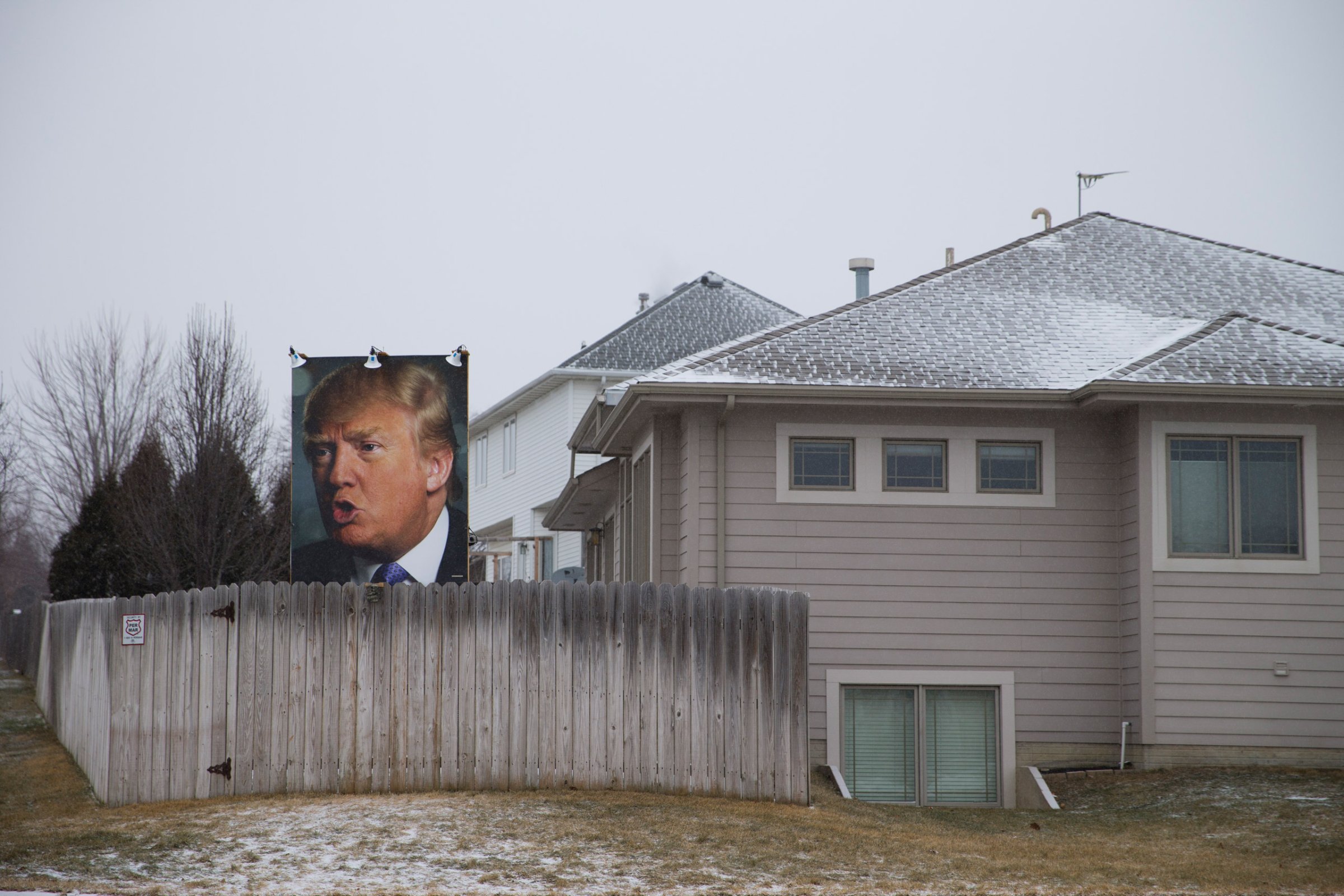
Republican presidential candidate Donald Trump released a new ad on Friday, but like most campaign radio ads, you probably won’t hear it—and that’s more or less intentional.
A less expensive alternative to television advertising, radio ads allow presidential candidates to reach very specific audiences. More importantly, they also allow campaigns to keep other audiences from hearing those messages.
“They tend to be more pointed, often times more controversial ads,” said Marvin Overby, a political science professor at the University of Missouri-Columbia who has researched the role of radio ads in political campaigns. “They tend to be the kind of ads that, if they got broader coverage, might spark some blowback from parts of the constituency.”
Trump’s new ad features Jerry Falwell Jr., the evangelical president of Liberty University, using the introduction he gave before Trump spoke at the Christian university last week.
“I have seen first-hand that his staff loves him and is loyal to him because of his servant leadership,” Falwell said in the 60-second radio spot that will air in Iowa and South Carolina. “In my opinion, Donald Trump lives a life of loving and helping others, as Jesus taught in the Great Commandment.”
The ad hints at a potential endorsement that would go a long way in shoring up votes with the Christian conservative voting bloc that Trump is reaching out to in both states. But airing it on Christian radio stations also avoids overplaying the message to audiences that might not be interested.
As with other radio ads, it also relies on a messenger who can speak to the targeted audience.
“On almost all television ads, the messenger is a white, middle-class person,” Overby said. “When you get on radio ads, especially for Democrats, they’re more likely to be ads that are not just targeted to African-Americans but feature African-American voices.”
Jay Barth, a professor at Hendrix College who has co-authored research on radio ads with Overby, said that’s particularly common in a state like South Carolina that has a large African-American population.
Ahead of the recent Democratic debate in South Carolina, Hillary Clinton ran an ad featuring Rev. Donnie Hunt, a black associate minister at a Baptist church in the state. Hunt described meeting Clinton in a bakery where he was preparing for Bible study. He said Clinton recited from memory the passage he was studying.
“She sat down, just the two of us alone in the bakery, and we talked about church and the need for better schools and how to stop racial inequality in our community,” Hunt said in the ad. “She listened, and I could tell she knows what must be done.”
Democratic rival Bernie Sanders has also pushed radio ads in South Carolina, and he released a Spanish-language ad in Nevada.
In Iowa, on the other hand, Barth said Republican candidates target male voters who care about the Second Amendment by advertising on hard-edged political talk radio, such as the Rush Limbaugh Show. They also advertise to rural voters and the Christian right using Christian radio stations. Barth said that’s “unquestionably” effective.
“You can do some targeting on television, especially on cable, but nothing like you can do on radio, where the demographics of the listeners are so much more tightly targeted than even on cable television,” Barth said.
Andrew Smith, a political science professor at the University of New Hampshire, said he’s heard a lot of radio ads in the state for Republicans Carly Fiorina and Jeb Bush, who he said is fighting a particularly hard battle for the attention of conservative radio listeners.
Smith often hears Bush ads during commercial breaks for the same conservative talk radio shows that bash him while praising Trump and Texas Sen. Ted Cruz.
“He’s fighting an uphill battle there,” Smith said, adding that a significant portion of Republican voters are talk radio listeners.
According to a new poll—sponsored by CNN/WMUR and conducted by Smith for the University of New Hampshire Survey Center—20% of Republican primary voters in New Hampshire listen to conservative talk radio. Among those listeners, Bush is the least popular candidate, and Cruz is by far the most popular.
The poll, conducted between Jan. 13 and Jan. 18, surveyed 974 New Hampshire adults and had a margin of error of +/- 3.1%.
Bush touted his anti-abortion values in a new radio ad running in South Carolina, while Cruz previously released an ad in Iowa in which Limbaugh calls the Texas senator the candidate “most steadfastly opposed to liberalism.” In an ad released in Iowa last week, the Carly for America super PAC praised Fiorina’s business background and her “American success story.”
Because radio ads aren’t as widely circulated as those on television, candidates don’t have to worry as much about whether the ad will offend or anger others.
“You can go more negative, especially in the closing days of a campaign,” Barth said. “And not have to face the potential backlash for taking those steps.”
More Must-Reads From TIME
- The 100 Most Influential People of 2024
- The Revolution of Yulia Navalnaya
- 6 Compliments That Land Every Time
- What's the Deal With the Bitcoin Halving?
- If You're Dating Right Now , You're Brave: Column
- The AI That Could Heal a Divided Internet
- Fallout Is a Brilliant Model for the Future of Video Game Adaptations
- Want Weekly Recs on What to Watch, Read, and More? Sign Up for Worth Your Time
Write to Katie Reilly at Katie.Reilly@time.com